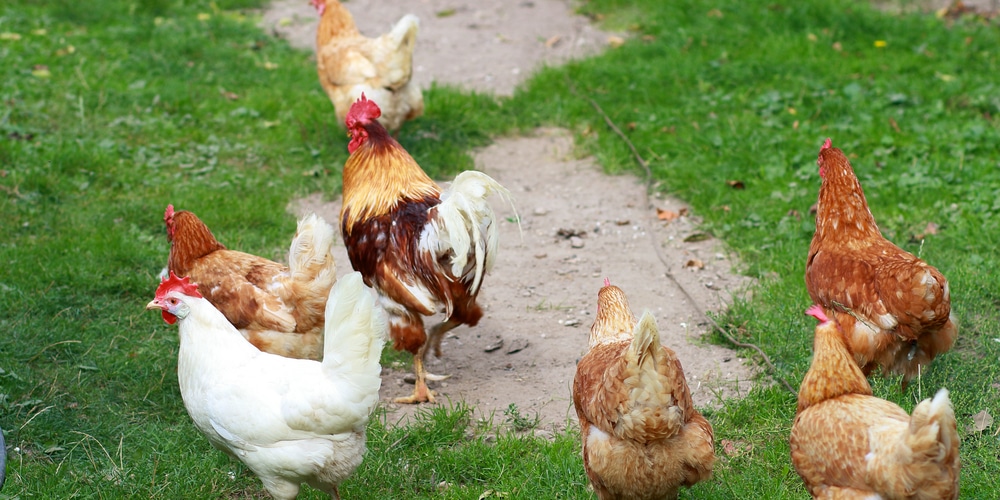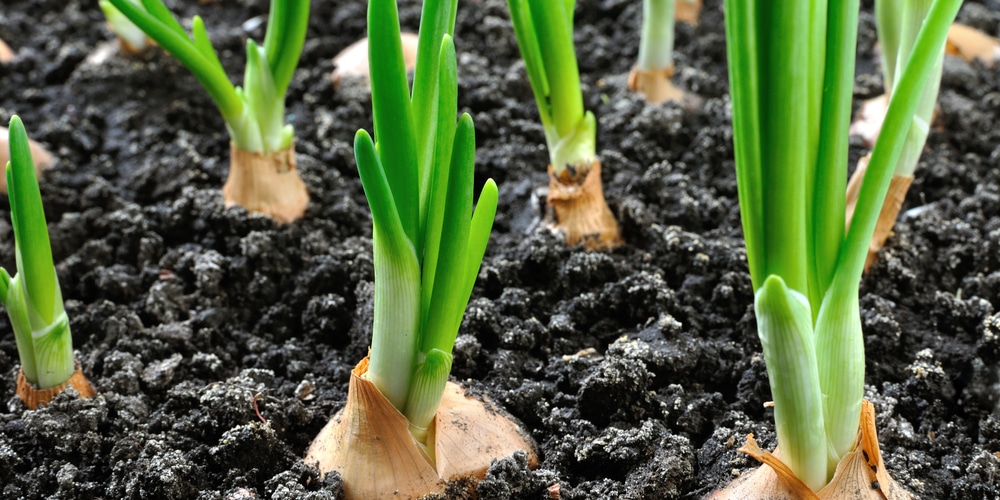When gardeners want a higher yield, taller plants, or a healthier garden, they often turn to fertilizer. But many of us feel less than drawn to commercial chemical products. Manure, after all, has fertilized food crops for centuries.
But what kind is best for which plants or vegetables? Is chicken manure good for onions?
What Fertilizer Does

The three main components in fertilizer products that plants care about are nitrogen, phosphorus, and potassium. While all plants need 17 elements to ensure proper growth, they need these three in the largest quantities.
If onions or other plants can’t get these three elements (in addition to the others) from the soil, air, or water, they can’t reach their full growth potential, and in extreme cases, they can die.
When fertilizer delivers nitrogen, potassium, and phosphorous, it aids in their growth, acting like a vitamin supplement we might take with our breakfast to ensure we meet our daily nutritional needs.
Why Manure?
Nearly all animal wastes— specifically feces— contain these three elements and have them in large amounts. What’s more is that when animal manure goes into your garden, the nitrogen contained in it doesn’t all immediately get released into the soil.
Instead, composted manure acts as a time-release capsule. Some of the nitrogen gets to the plants upon first application. Over the weeks, months, and years, other organic matter in the manure breaks down via ordinary decomposition and releases more nitrogen.
What Onions Get Out of It
Onions need more nitrogen than phosphorous and potassium, so finding a fertilizer that can provide higher amounts of that element than the others becomes crucial.
Since chicken manure has among the highest concentrations of nitrogen in all livestock waste, it’s an ideal fit for a field of onions.
Composted vs. Fresh Manure
Using fresh manure poses a risk to fruits and vegetables. Since chicken manure can contain E. coli, using it on food crops opens those crops to the possibility of getting tainted.
Fresh manure works well for trees, shrubs, and grass but is not safe for food crops.
However, after composting, chicken manure becomes safer for food crops and can have even higher nitrogen concentrations.
Applying Chicken Manure Fertilizer
Your onions have a good chance of growing if you don’t add fertilizer. But, by assuring that they get the nutrients they need via soil augmentation, you can harvest bigger, healthier onions. However, there’s more to it than just shoveling out the chicken coop.
The biggest thing to remember is that a little chicken manure goes a long way. Too much of it can result in run-off, during which the nutrients you’re trying to give your plants get washed away. And most of us know someone with a story about grass, weeds, and every living thing in the fertilized area growing crazily.
To ensure the best use of your chicken manure fertilizer with your onions:
- Wait to fertilize your onions until they’ve been in the ground for at least two weeks.
- Apply about one cup of chicken manure for every 20 feet of onion rows.
- Water the onions immediately after fertilizing.
- Following the initial application, wait at least two weeks before reapplying.
- When the onions’ necks begin softening, you need not apply anymore.
- Onions should be ready about four weeks after the necks soften.
Final Thoughts
Fertilizer helps a great deal with just about any garden. With an onion crop, since it needs lots of nitrogen, chicken manure is not only a good choice, it’s a great one for them. The manure’s high nitrogen levels will help your onions flourish. Chicken manure can also be used for other vegetables such as tomatoes and is also beneficial to lawn grass.
